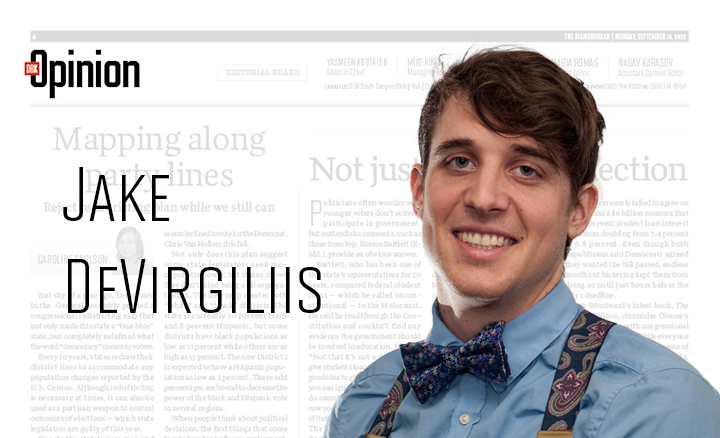
Senior government and politics major
I used to have very, very long hair. It was fun while it lasted and also extremely time-consuming. What’s interesting is now I have had the experience of a) not having long hair, b) having long hair and c) having had long hair previously. Others have perceived me differently in each phase.
What I miss most about my hairdo was the potential to start up conversations with complete strangers. Most notably, I spoke to strangers with long hair themselves. On countless occasions I made friends, if only for a short while, exclusively because of our shared experience of having an unusual hairstyle.
Others defined me in their own minds a certain way because of fairly inconsequential personal style choices I made. A particular set of assumptions and labels came prepackaged in people’s minds when dealing with someone possessing my previously unorthodox appearance.
Now, some of these assumptions, I’m sure, were spot-on. What’s worrying, at least to me, is that people had no problem making these assumptions, and likely were unaware they even made them. Subconsciously, I think plenty of people “knew” things about me before knowing even the slightest thing about me. I don’t blame them for it; it’s an unavoidable consequence of our appearance-obsessed culture.
My long hair has since been cut, but without a doubt others still use my current appearance to create a Jake in their own minds that does not necessarily reflect who I actually am. In doing so, these hypothetical onlookers miss what is interesting: the truth.
Regardless, I don’t believe the way I look has any bearing on who I am as a person. I look this way only because I want to, not to express anything about my personhood. Granted, this is different for others. Those who look a certain way only to appear a certain way aren’t doing anything wrong (in fact, they seem to be faring far better than me). What I’m worried about is the readiness of others to accept at face value what they are shown and the fact that many prefer this immediate “knowledge” they can acquire at first glance. And this is an unsettling cultural phenomenon if you ask me (which you have, by default, if you’ve read this far).
Perhaps this is yet another example of me desperately searching for meaning where there is none. That would be bitterly ironic, considering this entire piece has been about people doing just that (this tendency is the essential basis for almost everything I have written). But I base my theory on repeated observation that clearly reflects a larger cultural pattern.
The imagined, instant gratification-seeking masses I am indicting here are assuming information about a person, information I would argue is not so readily available based on what they can see. We all do it unknowingly, some more than others. I have only recently become aware of it, and in writing this, I won’t try to undervalue the importance of first impressions. But shouldn’t they be just that? Sure, that good first impression might get you a nice job, but if you are bad at the job, that just makes you a liar with charm and a nice tie.
This is probably the most critical problem facing American politics.
Jake DeVirgiliis is a senior government and politics major. He can be reached at j.devirgiliis@gmail.com.



